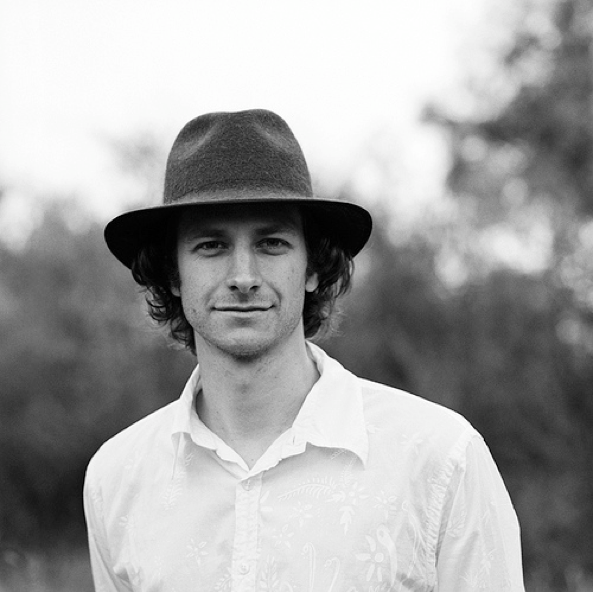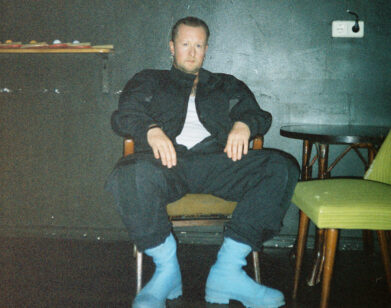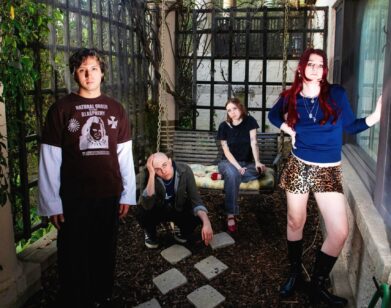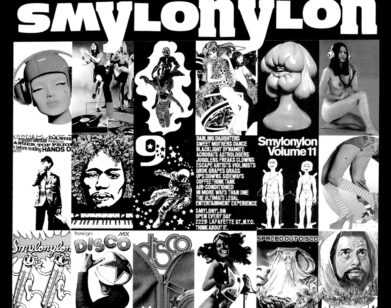Gotye, Beyond the Basics

ABOVE: WALLY DE BACKER
Belgian-Australian musician Wally De Backer, who goes by the musical surname Gotye, is a man of many talents. Formerly best known as one of the three members of Australian rock band The Basics, De Backer is now essentially a musical one-man show: he plays drums, does the percussion, plays piano, sings, writes songs, and produces his own music. Gotye has made his own version and combination of electro-pop and folk-pop, with influences ranging from ’80s pop to The Avalanches. His single, “Somebody That I Used to Know,” featuring Kimbra, has been topping the charts worldwide and Gotye’s debut album, Making Mirrors, featuring “Somebody That I Used to Know,” is out now.
We chatted with Wally De Backer about his nickname growing up and playing in New York City for the first time.
ILANA KAPLAN: Your real name is Wouter De Backer. What is the meaning behind your musician name, Gotye?
WALLY DE BACKER: So, the meaning behind Gotye. There’s no real meaning. It’s kind of my birth name. I was born in Belgium. My birth name is Wouter. Wouter translates into French as “Gaultier.” My mom was a French-speaker, so once in a while when I was younger, she used to call me “Gaultier” as a pet name. When I was in my early 20s, I wanted a name for my project that was kind of personal and similar to the way that I felt about my music: using the past to broaden into the present. I called her up, and she reminded me of that name. I decided how to spell it as a kind of jumbled surname, Gotye. I wanted a name that had passion. I came up with my own spelling for it, and that’s where it comes from.
KAPLAN: Obviously your single, “Somebody That I Used to Know” is an emotionally charged track. What was the process behind the songwriting?
DE BACKER: The songwriting for “Somebody That I Used to Know” was a linear process, and like a lot of my songs, it was put together over a few months. I started with a guitar sample from a Brazilian guitarist called Luiz Bonfá. Those two notes from the guitar sample started the song off. Those two notes prompted the reflective mood and the first two lines of lyrics, the first verse, and the first chorus. At the end of the first chorus, I had realized there was really more to add to my story, I thought. I had captured the song and it had become very bitter. I had gotten through the first chorus, and I thought it would be interesting if we strayed in a different direction and perspective and just wrote a female part. I spent about 5-6 months trying to find a female vocalist that would fill that part. And yeah, Kimbra was that vocalist.
KAPLAN: What’s your meaning behind the track?
DE BACKER: Let’s see. Well, I don’t know. I don’t think there’s a distinct meaning other than I hope to express the fact that two people who are in a relationship when it breaks down, quite often [people] have different perspectives on what happened and what was. There are lots of confused and mixed emotions that at different times can bubble up. It goes along with sweet, melancholy reflections versus angry recollections of things that happened. Those two people sometimes remember things in very different ways and would not agree on what the facts were or what actually happened, emotionally in the relationship. I just wanted to try something that captured that confusion and that difference. Just the fact that there are always two sides to every story. It’s often very unclear or impossible to agree or see eye-to-eye on things. Especially when there’s some bad blood in between.
KAPLAN: I caught your performance during CMJ at Santos Party House with Walk the Moon and Little Boots. What was it like playing CMJ for you? Was that your first time playing a CMJ?
DE BACKER: That was actually my first show in New York.
KAPLAN: Up until now, you’ve been one-third of the Australian rock-‘n-roll band, The Basics. How is this project different from The Basics?
DE BACKER: I get to call the shots, which is both freeing and also a challenge. You can’t rely on your mates or other people as much. They’re just two different projects. One is a rock-‘n-roll band started between three mates in their early twenties. It has certain parameters. In the case of The Basics, there were drums, guitar, and bass, three voices. Those are the instruments we play. In the Gotye project, I quite actively pursued trying to make it sound as different as possible song by song. I tried to take it in as many directions as possible. Sometimes within a rock-‘n-roll band, there are certain parameters. They are just different projects.
KAPLAN: Your debut album, Making Mirrors, is out this week in the US. What is the theme behind it? Is there a theme?
DE BACKER: I would say trying to find a coherence amongst as many divergent directions as possible, which is pretty much how I approach music in general and in songwriting.
KAPLAN: Your music seems to gather a lot of exotic sounds and has a worldly feel to it. Who are some of your influences?
DE BACKER: Some of the people that have had a bearing on the music I make are The Avalanches, electronic pioneers from the sixties, Gregg Gillis, ’80s pop guys like Peter Gabriel, Kate Bush. Lots of different people. I listen to lots of different kinds of music. Kings of Convenience from Norway, I really love.
KAPLAN: Where do you see this project going musically in the future?
DE BACKER: I don’t know. I haven’t thought about that too much. I don’t have a plan for what that will be. I think there’s a possibility of doing a record being more electronic. One that’s maybe purely electronic. At the moment, I’m getting into a lot of new instruments. I’m quite drawn to making a record that’s actually much more organic that might use more textures, colors, melodies and harmonies rather than percussion and drum sounds. Drumbeats are a starting point. I don’t know. I’ve got a few different directions it could go in.
GOTYE’S MAKING MIRRORS IS OUT IN THE US NOW. FOR MORE ON THE ARTIST, VISIT HIS WEBSITE.






